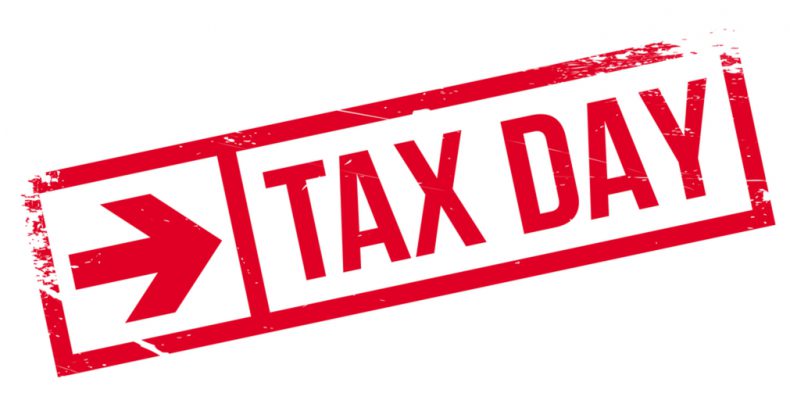
Washington (People’s Daily) – The US Internal Revenue Service (IRS) on Tuesday issued a one-day and penalty-free extension for Americans who have not filed their 2017 income taxes electronically on the expected 2018 Tax Day after an all-day computer breakdown.
It was the first time a system failure has caused the IRS to extend the deadline for filing personal income taxes by an extra day. What also made this year’s Tax Day special was that it marked the last time Americans filed taxes under a complicated and outdated tax system.
On December 22, 2017, US President Donald Trump signed the Tax Cuts and Jobs Act, cutting the corporate tax rate from 35 percent to 21 percent and lowering the top individual tax rate to 37 percent.
According to the new tax law, the corporate tax reduction stays permanent, while the individual tax cuts will expire at the end of 2025.
Trump wrote on Tuesday, “In the years ahead, because I signed one of the largest tax cuts in history and the most sweeping tax reform in a generation, many Americans will complete their taxes on a simple, single sheet of paper.”
He also stated that “on this Tax Day, America is strong and roaring back. Paychecks are climbing. Tax rates are going down. Businesses are investing in our great country. And most important, the American people are winning.”
Some Republican members of Congress consistently pulled off the feat and highlighted the benefits of tax cuts and reforms in US media and their personal social networking accounts.
“To this day, I still think of spring as the perfect time to say, out with the old, in with the new. Looking back on the past four-plus decades I’ve spent in politics, I can think of no better day for us to celebrate that same sentiment than today,” US Senate Finance Committee Chairman Senator Orrin Hatch wrote in the Daily Herald.
Trump’s daughter Ivanka also stepped on stage on Tax Day to discuss her father's tax reform in New Hampshire, accompanying US Treasury Secretary Steven Mnuchin.
Corporate optimism
Over the first quarter of fiscal 2018, America’s four biggest banks – JPMorgan Chase & Co, Wells Fargo & Co, Citigroup Inc and Bank of America Corp – were reported to increase earnings of more than $2.3 billion.
The top management of these banks acknowledged that the reduction in the corporate tax rate did contribute to their first-quarter earnings growth.
Juanita Duggan, President and CEO of NFIB, America’s leading small business association, said in March, “This is the first time in 35 years where the fewest number of small business owners have told us that taxes are their number one business problem. They’ve been so optimistic that they feel confident enough to raise wages and invest in their business, which grows the economy.”
However, a poll conducted by Gallup, an American research-based consulting company, in early April found no change in Americans’ reaction to the new tax law since the last update in February 2018, with 39 percent of people saying they approve of the law and 52 percent disapproving of it.
Public expectations for the tax law’s personal and national impact also remained divided along party lines.
Despite possibly bigger paychecks, Americans may suspend judging the impact of the tax law until they file 2018 tax returns next year, the poll showed.
Dark clouds ahead
While the Trump administration hopes to generate extra revenue to avoid fiscal fallout after the US economy improves with the tax overhaul and deregulation, the International Monetary Fund predicted recently that the US debt-to-GDP ratio is projected to widen to 116.9 percent by 2023.
As Bloomberg reported, the prediction renewed focus on the US economy after the enactment of $1.5 trillion in tax cuts, and the passage more recently of $300 billion in new spending.
Officials with the Federal Reserve and Congressional Budget Office are skeptical about economic expectations, as they forecast long-term economic growth will fall short of expansion rates needed to fund tax cuts, the report said.
In an interview Wednesday on Bloomberg Television, former Chairman of US Federal Reserve Alan Greenspan said reducing corporate taxes was important, but “the trouble, unfortunately, is it is unfunded”.
He added that Republicans should have done “spending cuts first before you try to do tax cuts”.


